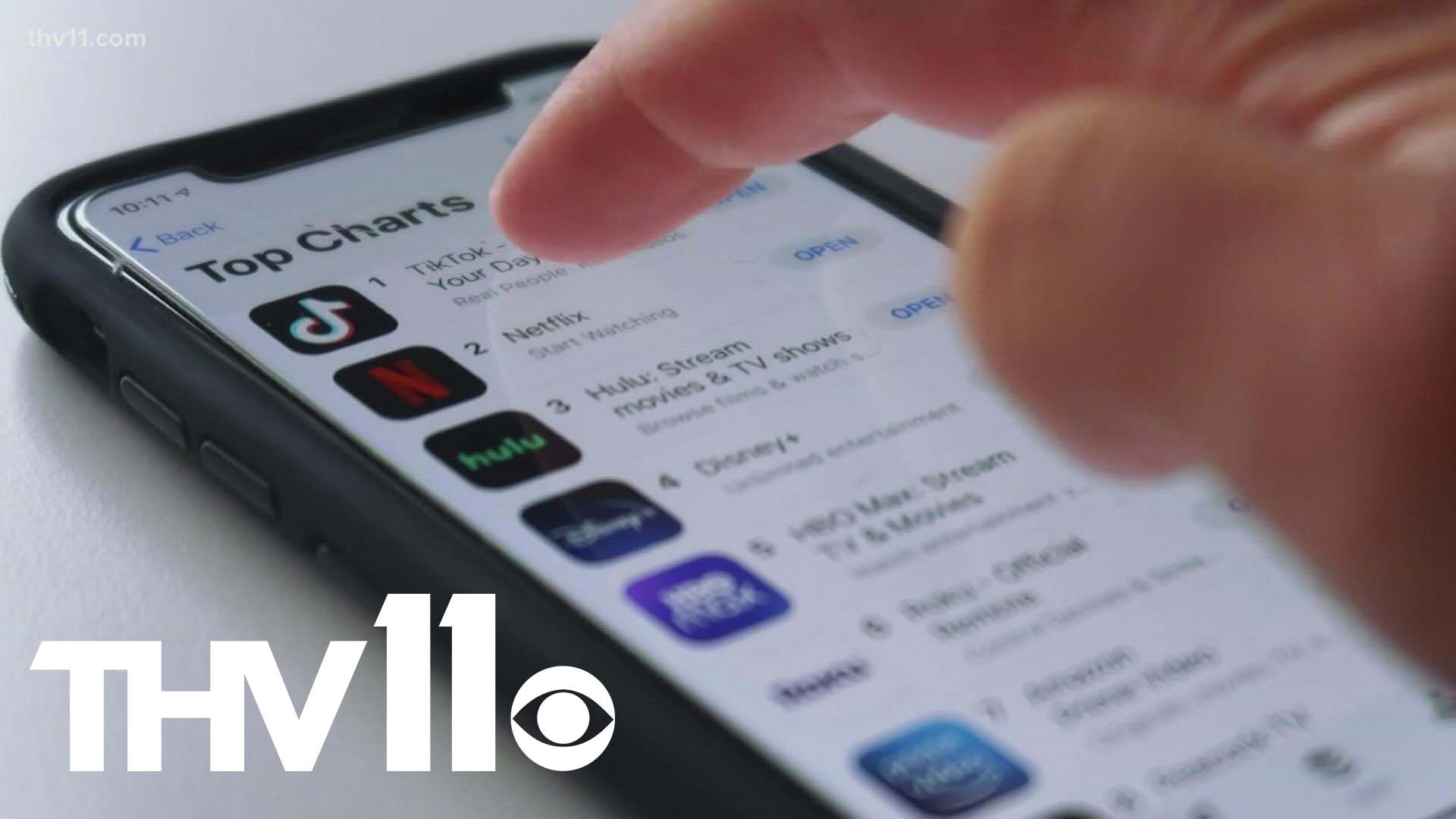LITTLE ROCK, Ark. — Lately we've seen some scary stories that show the dangers of social media, making headlines around the country.
And while parents can't control everything that their children see, there are some ways to make sure that they are as protected as possible.
We're living in a world that's filled with social media, from TikTok trends to Snapchat streaks to Instagram influencers, and it's something that parents are noticing as well.
"14-year-olds nowadays are teaching me how to contour my makeup and I'm almost a 40-year-old woman," Natalie James said.
Social media is a major part of the James' lives, much like countless other families not only in the state, but around the country.
While Natalie's two daughters make their daily scroll through apps, so does she.
"In the morning, it's just part of those daily tasks. We're brushing teeth, they're getting dressed, and I'm going through cell phones and looking through different messages," she said.
James said while that monitoring may calm her worries a bit, the real key are the tough, but open conversations she has with her children about potential dangers online.
"It's harder being a kid now. So I just want to make sure that I'm going through with them, so that they don't have to go through it by themselves," she said.
With the pandemic causing more kids to stay at home, they've spent more time scrolling through social media on their phones as a result.
In fact, Lisette Yang with The Children's Protection Center of Arkansas, said they've seen an increase in reports where kids are running into danger online.
"So I've been here almost 10 years and I can tell you that before COVID, we always have the number of cases increasing in the community, but there's a big problem," she said.
As the Senior Forensic Interviewer and Outreach Education Coordinator, Yang spends a lot of her time working with kids and educating them on the dangers of social media.
While she said lack of supervision is a major issue, it's not the only factor that can get kids into a scary situation.
"When you have kids that the schools are providing tablets or Chromebooks, even though they might have a password or a block for them not to go to different sites, the kids are very smart and the kids know exactly how to remove these blocks," Yang said.
So, what should parents do to protect their children?
Yang said watch out for hidden apps and block your kids' laptop cameras when they're not using them so they aren't hacked.
Most importantly though, she said make sure there's open communication so your kids feel comfortable coming to you about a problem.
"Kids are always told to be quiet and to keep it a secret, but cases like these it's important that children need to learn that it's okay to tell," Yang said.
Yang also added while "stranger danger" online is still prevalent, they are seeing more cases of the predator actually being someone the child knows personally.

